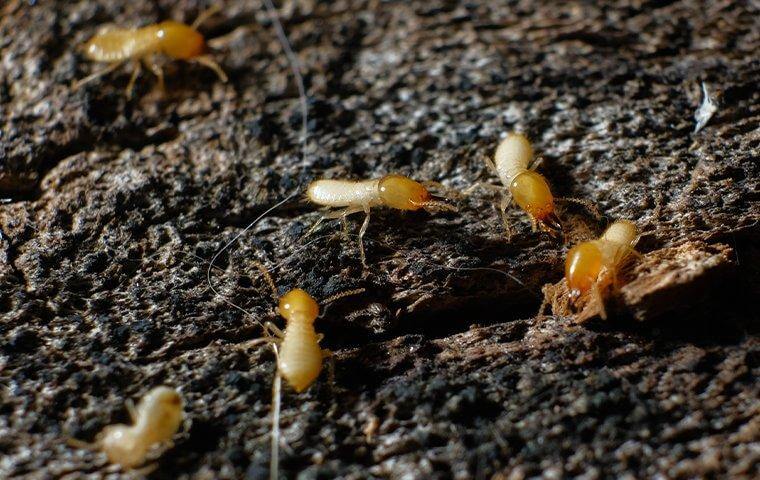 When people hear the words “spring” and “summer,” there are things that commonly come to mind. Vacations, holidays, and outdoor activities are thoughts associated with the seasons. Most people won’t think about termites. But they should. Though these wood-eating bugs are active all year long, some species are particularly busy during the spring and summer. This is when new colonies are formed. Termites love the warmer temperatures and rainfall.
When people hear the words “spring” and “summer,” there are things that commonly come to mind. Vacations, holidays, and outdoor activities are thoughts associated with the seasons. Most people won’t think about termites. But they should. Though these wood-eating bugs are active all year long, some species are particularly busy during the spring and summer. This is when new colonies are formed. Termites love the warmer temperatures and rainfall.
The last thing Philadelphia residents want is for their home or business to be a prospective site for termites. These pests will eat away at a building’s structure and can cause it to crumble, given enough time. Each year, termites create $5 billion in prevention and recovery costs for Americans. Most insurance companies won’t help curb this either. Read on to find out how you can get ahead of these destroyers before their peak period begins. Also, learn how Pestmaster® Services can lend a hand.
What Are The Signs of Termite Activity?
Termites frequently go undetected because they live and operate inside the wood they are infesting. On rare occasions, you may see a gray or grayish-white worker termite. They’re about ⅛ of an inch long. Their soldier buddies are a bit larger and are yellow-brown. They have pronounced jaws and rectangular heads. The winged swarmers are the ones you’re most likely to spot. They’re responsible for mating and making nests. Once the colony has reached capacity, they leave in search of a new home. Thus, catching them out and about is the ultimate sign of infestation. They’ll exit through wall gaps and flutter around light. They are ½ an inch long and are brown, yellow, or black in color with translucent wings.
Be on the lookout for other indicators of termites:
- Slumping or discolored drywall
- Multiple pin-point size holes in foundations
- Floor tiles and floorboards that are loose or giving in
- Chipping, peeling, or puffing paint that appears water-damaged
- Seeing fecal piles that resemble salt and pepper
- Hollow-sounding or deteriorating wood
- Seeing mud tubes and maze patterns in walls
- Dropped pieces of swarmer wings that look like fish scales
- Hearing ticking or clicking sounds behind walls
What Can Be Done to Prevent Termites?
We use wood to make just about everything, including furniture, but a termite takeover is not inevitable. The go-to termite prevention methods for home and business owners consist of paying attention to structural quality and doing some landscaping:
- If you have any wood that is rotting or ruined, repair it or remove it. This is especially important if the wood has been softened by water.
- If you have moisture issues, such as a leaky pipe, get it fixed as soon as possible. If it’s making wood wet, it needs immediate attention.
- Store loose wood in an area far from your property, and keep it off of soil (ex. carpentry panels).
- Find cracks in walls, foundations and utility lines, and have them sealed. You can try using caulk.
- Groom your yard and all greenery. Plants, shrubs and flowers should be several feet from your outer walls.
- Routinely clean your gutters and vents. They should be trash-, debris- and dirt-free.
What Can Pestmaster® Services Do About Termites?
You may think that you can get rid of termites with a retail insecticide, but you’d be wrong. Most commercial products only work on the surface, which means the bugs will live another day.
The technicians from Pestmaster® Services are specially trained and only use industry-grade products. Our tools and devices are designed to effectively exterminate termites and protect your Philadelphia property, long term. Prepare for the season and give us a call!
.png)
